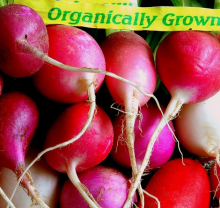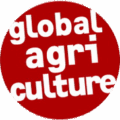
Organic farming can produce sufficient yields to feed a growing world population, be profitable for farmers, protect and improve the environment and be safer for farm workers. That is the conclusion of a large review study by Washington State University researchers, published in the February issue of the journal “Nature Plants”. The authors looked at 40 years of science comparing the performance of organic and conventional farming systems in terms of four key sustainability goals: productivity, environmental impact, economic viability and social wellbeing. “Thirty years ago, there were just a couple handfuls of studies comparing organic agriculture with conventional,” lead author John Reganold, WSU Regents Professor of Soil Science and Agroecology, said in a press release. “In the last 15 years, these kinds of studies have skyrocketed. Hundreds of scientific studies now show that organic ag should play a role in feeding the world,” he added. Although organic agriculture may in general produce lower yields, with certain crops, growing conditions and management practices organic farming comes close to matching conventional yields. Reganold and his doctoral candidate Jonathan Wachter found that “under severe drought conditions, which are expected to increase with climate change in many areas, organically managed farms have frequently been shown to produce higher yields than their conventional counterparts due to the higher water-holding capacity of organically farmed soils.” According to the authors, numerous studies prove the environmental benefits of organic production: “Aggregate studies have found that organic farming systems consistently have greater soil carbon levels, better soil quality and less soil erosion compared with conventional systems.” In addition, organic farming also creates less soil and water pollution and lower greenhouse gas emissions. In economic terms, organic agriculture proved significantly more profitable and had higher benefit/cost ratios than conventional agriculture because consumers are willing to pay higher prices for organic produce. Putting a price on the negative externalities caused by farming, such as soil erosion or nitrate leaching into groundwater, would make organic agriculture even more profitable, the review shows. “With only 1% of global agricultural land in organic production, and with its multiple sustainability benefits, organic agriculture can contribute a larger share in feeding the world,” the authors write. However, policy changes are needed to address the barriers that hinder the expansion of organic agriculture. These obstacles include the costs of transitioning to organic certification or lack of access to markets, loans and insurance, especially in rural regions and less-developed countries. But Reganold and Wachter also make clear that there is no silver bullet solution to feeding the world. “Rather, a blend of organic and other innovative farming systems, including agroforestry, integrated farming, conservation agriculture, mixed crop and livestock, and still undiscovered systems, will be needed for future global food and ecosystem security.” (ab)
